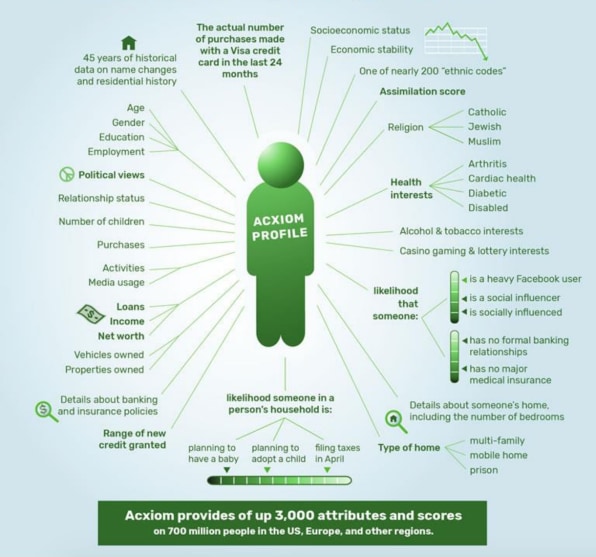
The realm of information exchange is vast and multifaceted. In today’s society, the flow of intelligence shapes our interactions and decisions. Different organizations collect and distribute various forms of knowledge. This intricate web raises questions about privacy and ethics. Moreover, it reveals the significance of understanding those who operate within this landscape.
How do these entities function? What motivates their pursuit of insights? These questions lead us to explore the systems in place. The impact of such operations extends beyond mere numbers and statistics. It influences consumer behavior, shapes marketing strategies, clean up your online data and even sways public opinion.
At the heart of this phenomenon lies a complex framework of relationships. The roles of these firms in acquiring and disseminating vital information cannot be overlooked. They possess the capability to connect disparate pieces of intelligence into coherent narratives. However, not all practices are transparent, raising ethical dilemmas that demand scrutiny.
Understanding the mechanisms at play is crucial for individuals navigating this environment. Each interaction carries weight, each transaction matters. As the importance of information continues to grow, so does the responsibility of those involved. The landscape is evolving, creating a pressing need for awareness and insight into this intricate web of exchanges.
What is NNDB? An Overview

In today's interconnected world, certain entities play a pivotal role in the exchange of information. These organizations gather, analyze, and sell various types of information that can be used for many purposes. The dynamics of these exchanges are complex, involving numerous stakeholders and various interests. As we delve deeper, it becomes essential to understand the nature of these organizations, their objectives, and how they operate within the broader ecosystem.
At its core, an entity engaged in the collection and distribution of information acts as an intermediary. They compile various types of information from diverse sources which could include online activities, public records, and even purchases. This amalgamation of knowledge creates comprehensive profiles that can be incredibly useful for businesses seeking insights into consumer behavior. Businesses leverage this information for targeted marketing and other strategic decisions.
The primary players in this arena are often classified based on their specialization. Some focus on personal information, while others might deal in financial data, purchasing trends, or behavioral insights. Each organization has its unique approach, leading to a wide variety of services and offerings. Understanding the motivations behind these practices is crucial, as it reveals the underlying mechanisms that drive their operations.
|
Type of InformationSourceUse Case|
Personal DataSurveys, social mediaTargeted advertising|
Financial InformationCredit reports, transactionsRisk assessment|
Behavioral InsightsWeb browsing, app usageProduct recommendations|
Demographic DataPublic records, censusMarket analysis
Moreover, as the industry evolves, the methods employed by these entities continue to become more sophisticated, driven by advancements in technology and analytics. This complexity raises critical questions about ethics and privacy, prompting a need for robust discussions around accountability and regulations. As we navigate this landscape, recognizing the implications of how information is handled becomes increasingly important.
Data Brokers: Who Are They?
In the world of information exchange, certain entities play a crucial role. They engage in the collection and distribution of personal insights. Often, these organizations operate behind the scenes, shaping how information flows. They gather various types of information from numerous sources. The complexity of their work can be quite surprising.
These firms typically acquire information from public records, online activity, and other data streams. They compile this information into comprehensive profiles. The end goal is to provide insights to other businesses or organizations that require it. This service falls within a broader category of information services that many may not fully comprehend.
Some of these companies specialize in specific sectors. For instance, some focus on consumer habits, while others may concentrate on financial behaviors. This specialization allows them to cater to unique client needs. Consequently, they have carved out a niche in various industries.
Moreover, their influence extends beyond traditional companies. Political campaigns, marketing agencies, and even research institutions often rely on their insights. By bridging the gap between information sources and end-users, they essentially act as intermediaries. Their activities can impact decision-making processes in ways that are not immediately apparent.
Understanding these entities involves recognizing the vast amount of information they handle. They use advanced technology and analytics to process this information efficiently. This allows them to transform raw data into actionable insights. It is fascinating to see how they adapt to changing market demands and technological advancements.
Ultimately, the operations of these organizations raise important questions about transparency and ethics. The role they play in shaping strategies for various sectors cannot be underestimated. As society continues to evolve, the dynamics of these firms will likely change as well. Their ability to pivot and adjust to new realities will determine their relevance in the future landscape.
The Role of NNDB in Data Exchange

The landscape of information exchange is intricate and ever-evolving. At the heart of this ecosystem lies a significant player that facilitates connections between various entities. This organization plays a crucial role in streamlining the transfer of insights and resources. They act as intermediaries, linking diverse sources and recipients, which enhances efficiency and fosters collaboration.
In today’s fast-paced world, understanding the dynamics of such exchanges becomes essential. Companies and individuals are constantly seeking ways to leverage acquired knowledge for strategic advantages. The entity in question serves as a bridge, ensuring that valuable insights are accessible to those who need them. By providing a platform for sharing, they contribute to a richer understanding of market trends and consumer behaviors.
Moreover, the exchange of information is not merely transactional; it embodies a complex interplay of trust and responsibility. This organization mandates transparency and accountability, striving to maintain integrity in all exchanges.